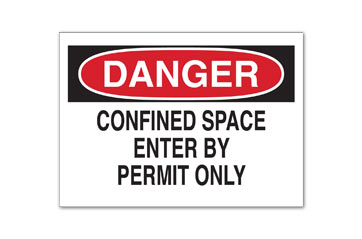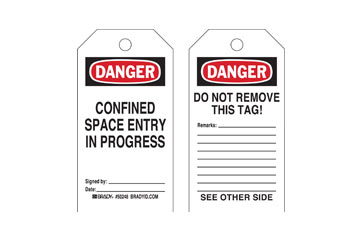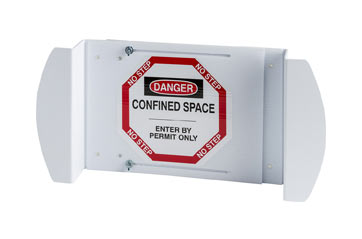Labels for Safety, Visual and Facility ID Desktop Printers
Keep your crew safe: 5 actions to enhance your confined space safety program
Confined space compliance starts with properly identifying and classifying these spaces, but to do it right requires time and resources. Yet, it’s important work that ensures your team goes home safe each and every night. If tackling your confined space to-do list feels overwhelming, we’re here to help.
What are confined spaces?
OSHA defines confined spaces as areas within your facility that aren’t necessarily designed for people but are large enough for workers to enter and perform center jobs. A confined space also has limited or restricted means for entry or exit and is not designed for continuous occupancy. Some examples include:
- Boilers
- Tanks
- Silos
- Equipment housing
- Tunnels
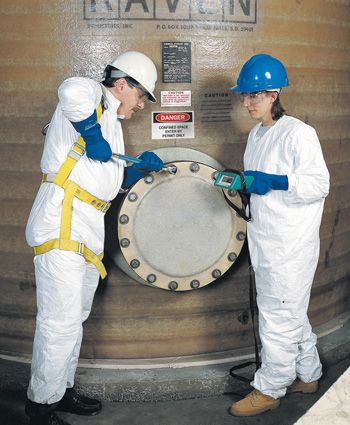
What is a permit-required confined space?
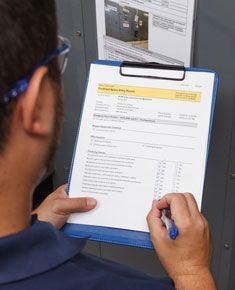
OSHA requires employers to evaluate confined spaces within the workplace to determine if they have any "permit-required confined space" characteristics. This OSHA term is used to classify a space that has one or more of the following characteristics:
- Contains or has the potential to contain a hazardous atmosphere
- Contains any other recognized safety or health hazards, such as unguarded machinery, exposed live wires or heat stress
- Has walls that converge inward or floors that slope downward and taper into a smaller area, which could trap or asphyxiate an entrant
- It contains a material that has the potential to engulf an entrant
5 actions to take now
Now that we've covered the basics, it’s time to tackle the 5 actions you can take now to enhance your confined space safety program:
- Maintain a written confined space program
Maintain a written confined space program, as required by OSHA, that includes unauthorized entry prevention, safe entry practices and confined space risk assessment reviews prior to entry.
- Engage and educate management, leadership and employees
Keep everyone safe by keeping them informed. Educate each group on the regulation and resource requirements for your confined space program.
- Inventory and assess your workplace
Develop a sustainable, compliant confined space catalog or inventory system to help you evaluate and document confined spaces at your worksite. An essential step in an effective program is classifying each confined space as either permit-required or non-permit required. Sometimes confined spaces can be reclassified if lockout tagout is sufficient.
- Establish procedures for permit-required confined spaces
Permit-required confined spaces require additional procedures and practices to eliminate or control hazards to be established for safe permit space entry. Once these spaces have been identified, establish and implement the permit requirements that will allow for safe permit entry.
- Regularly evaluate your program for long-term sustainability
Regularly evaluating your program ensures your confined space program remains up-to-date and ensuring everyone stays safe.
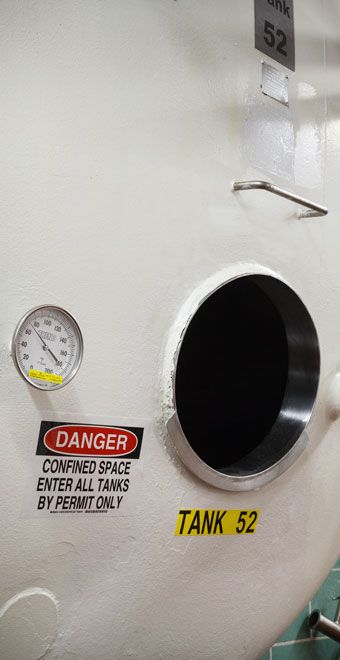
Expand your confined space resources
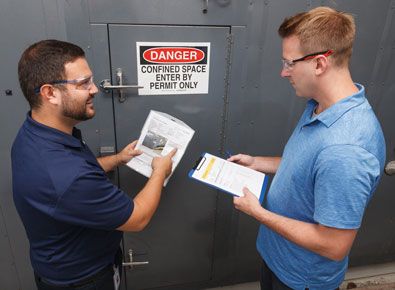
Managing your confined space program can feel overwhelming, but it doesn’t have to be that way. When resources and time are limited, our field engineers are ready to help. Our Confined Space Safety Solutions include:
- Custom Confined Space Training
- Confined Space Inventory and Classification
- Confined Space Hazard Assessment
